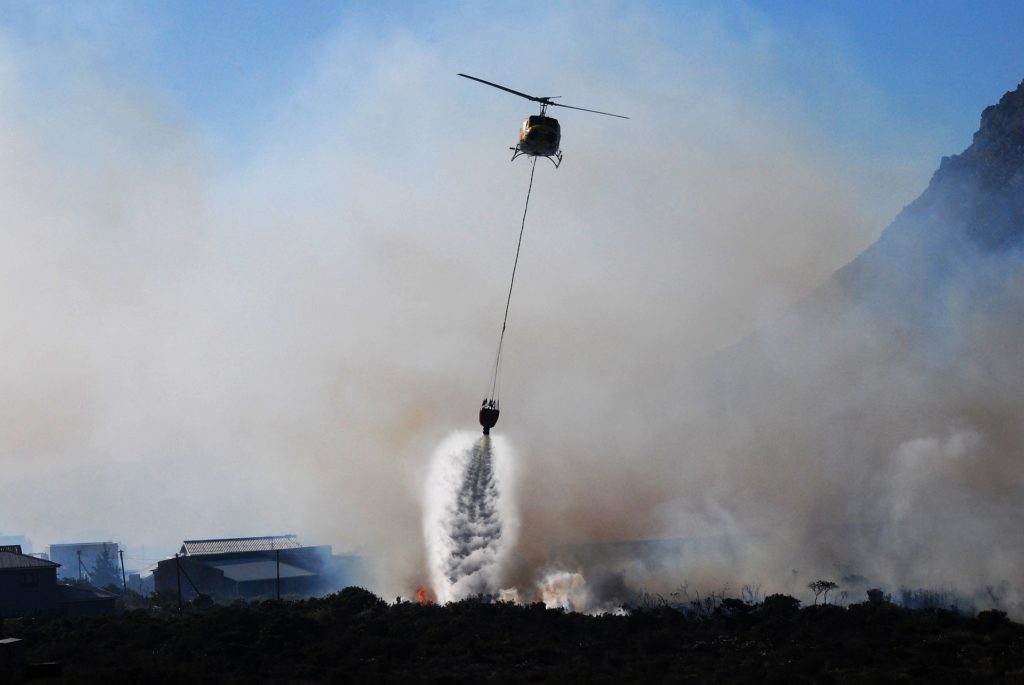Wildfire Insurance
We will search the top carriers for you for the best offer.
Wildfire Insurance
Wildfires can be devastating, leaving destruction in their wake. To ensure your home and property are protected, wildfire insurance is a must. In this guide, we’ll explore the world of wildfire insurance, its significance, and how it can safeguard your assets from the ravages of wildfires.
Understanding Wildfire Insurance
Wildfire insurance, often included as part of a standard homeowners insurance policy, is designed to provide coverage for damages caused by wildfires. This coverage helps homeowners recover from the financial losses resulting from wildfire-related damage to their property.
The Importance of Wildfire Insurance
Here’s why wildfire insurance is essential for homeowners in wildfire-prone areas:
Property Protection: Wildfire insurance covers the repair or replacement costs of your home and personal belongings damaged or destroyed by wildfires.
Additional Living Expenses: If your home becomes uninhabitable due to a wildfire, this insurance can cover temporary housing and living expenses.
Liability Coverage: It provides liability protection in case someone is injured on your property during a wildfire.
Peace of Mind: Knowing you have coverage in place gives you peace of mind and ensures you can quickly rebuild your life after a wildfire.
Key Components of Wildfire Insurance
Comprehensive wildfire insurance typically includes the following components:
Dwelling Coverage: This covers the cost to repair or rebuild your home if it’s damaged or destroyed by a wildfire.
Personal Property Coverage: It reimburses you for the loss of personal belongings damaged in a wildfire, such as furniture, clothing, and electronics.
Additional Living Expenses: This covers the cost of temporary housing, meals, and other living expenses if you’re unable to live in your home due to wildfire damage.
Liability Coverage: Provides protection in case you’re held responsible for injuries or damages to others during a wildfire.
Loss of Use Coverage: Covers additional living expenses incurred while your home is being repaired or rebuilt.
Landscaping Coverage: Covers the cost to repair or replace damaged landscaping and trees.
Protecting Your Home and Peace of Mind
Wildfires are a formidable force of nature, but with the right insurance coverage in place, you can protect your home and property. Wildfire insurance ensures that you have the financial resources to rebuild and recover, allowing you to face the challenges posed by wildfires with confidence and resilience.
Wildfire Insurance FAQs
If you’re concerned about wildfires in your area and want to know if you have the right wildfire insurance protections, start here. These FAQs describe the wildfire coverage provided by typical homeowners, business, auto, condo, and renters insurance policies.
Homeowners Coverage
Q: If a wildfire destroys my house, will my insurer cover my rebuilding costs?
A: Typical homeowners policies cover fire, lightning, and wind damage. If your home were damaged or destroyed by a wildfire, your insurance company would cover smoke damage, roof replacements, and even the costs of rebuilding your entire home. Homeowners policies also cover structures like tool sheds and garages.
Q: What if my family’s home is so badly damaged by a wildfire that we can’t live in it?
A: Your policy covers reasonable expenses while your home is rebuilt or repaired, such as purchasing warm clothing and staying at a hotel. Keep all of your receipts – you’ll need them to make a claim.
Q: What if my personal belongings are destroyed? How much do insurers pay to replace furniture, appliances, and clothing?
A: Your personal property is covered up to your policy limits. Typical homeowners policies cover 50 to 75% of your home’s coverage amount. Be sure to inventory your belongings with videos, receipts, appraisals, photos, and model numbers to get a quicker and more accurate settlement. Keep this information outside your home (e.g. in a safety deposit box). If a wildfire damages your home, don’t throw away any ruined belongings until a representative from your insurer has assessed the damage and prepared a claim report.
Q: What if people damage my home or steal my possessions after a disaster?
A: Homeowners policies usually cover vandalism and theft. If you must leave your home unattended during or after a crisis, you’re protected.
Q: What kind of personal coverage do I have?
A: You probably have one of two property insurance types: actual cash value or replacement cost. Replacement cost policies replace damaged items with new, similar items. Actual cash value policies are more affordable than replacement cost policies; they pay to replace damaged items, but take depreciation into account.
Q: What about my older home? Do I have replacement cost coverage?
A: Typical homeowners policies pay for dwelling repairs on a replacement cost basis. Your insurer will cover your entire repair bill (after your deductible), regardless of the age of the structure. If your house is worth only a fraction its replacement cost, consider an older home policy which covers only basic repairs. Unless the dwelling is rebuilt, your insurer pays the lower of two costs: the necessary repairs or your home’s market value (minus the value of your land).
Q: Does my insurer cover my plants, shrubs, and trees?
A: Typical homeowners policies cover personal (non-business) lawns, plants, trees, etc. damaged or destroyed by wildfires up to 5% of your dwelling’s liability limit, and $500 for any one plant.
Q: Does my policy cover the part of my home I rent out?
A: Homeowners policies typically cover the rental values, minus any lowered expenses caused by this vacancy.
Auto Coverage
Q: If a wildfire damages or destroys my car, is it covered? What about theft and vandalism?
A: Your comprehensive auto insurance policy will cover damage, theft, and vandalism. Collision policies don’t offer this coverage. Any personal belongings stolen from your car are covered by your renters or homeowners policy.
Renters Insurance
Q: Does my landlord’s policy cover damage to my personal property?
A: No. The policy your landlord holds only covers structural damage to the building. You need renters insurance to cover your belongings.
Q: If my apartment building needs rebuilding, how do I pay for an extended hotel stay?
A: If you can’t live in your apartment, your renters policy covers your extra living expenses. Many policies reimburse the difference between these expenses and the amount you normally pay.
Condo Insurance
Q: After a wildfire, who pays for the damages to my belongings, home improvements, and the building itself?
A: After a disaster, your condo insurance policy covers your personal property and built-in improvements (sometimes excluding those made by previous owners). Your co-op/condo board holds a master policy to cover common areas. Your condo association insures individual living units (as originally constructed). This may only include the floor, ceiling, and walls, not plumbing and wiring. Unit assessment coverage can reimburse you for assessments levied for common area damage.
Business Insurance
Q: Is my business covered for wildfire damage?
A: Typical business owner’s policies cover repair and rebuilding costs due to fire, rain, and wind damage (but not flood damage).
Q: What if I have to shut down my business after a wildfire?
A: Your business interruption (or income) insurance can compensate you for lost profits after a covered peril (not evacuation orders or utility disruptions). Your deductible may be calculated in dollars or business disruption time.
Q: What if my business is closed for repairs?
A: Your business income policy covers lost profits and the added expenses of operating in temporary locations. Ordinance and Law policies can help cover any extra demolition and rebuilding costs.
Life Insurance
Q: What if my spouse or I am killed in a wildfire?
A: The surviving spouse can use their life insurance payments to cover funeral costs, child care obligations, and all other expenses.
Q: Can I borrow against my life insurance policy or surrender my contract to get emergence funds?
A: Yes. Borrowing is preferable because you maintain your death benefit. Remember – you will need to repay this loan. If that isn’t feasible, consider surrendering your policy for its cash value.
Other Questions
Q: What if I don’t have any documentation after a wildfire, like my home inventory and insurance policy?
A: Your insurance agent can get a “proof of loss form” from your insurer. An adjuster visits your property to examine the damage (you may need to get separate repair estimates). Provide as much information as possible: descriptions of damaged items, estimated dates of purchase, and repair/replacement costs.
- How much time do I have to file a claim?
- Time limits vary, depending on your insurer and state.
- What if I have trouble with my claim?
- If you feel your insurer isn’t managing your claim properly, talk with the person from whom you bought your policy. Send your insurer’s claims manager a written description (with documentation) of your complaint. Contact your state’s insurance department and consider mediation between you and your insurer.
We will find the best business insurance tailored to your needs. Read more…
Related Posts
Get a Right Insurance For You
SHARE THIS ARTICLE

Wildire insurance Quote
Send the request and we will quote multiple markets to get you the best coverage and price.
We will compare quotes from trusted carriers for you and provide you with the best offer.
Protecting your future with us
Whatever your needs, give us a call, have you been told you can’t insure your risk, been turned down, or simply unhappy with your current insurance? Since 1995 we’ve been providing coverage to our customers, and helping people across United States.














